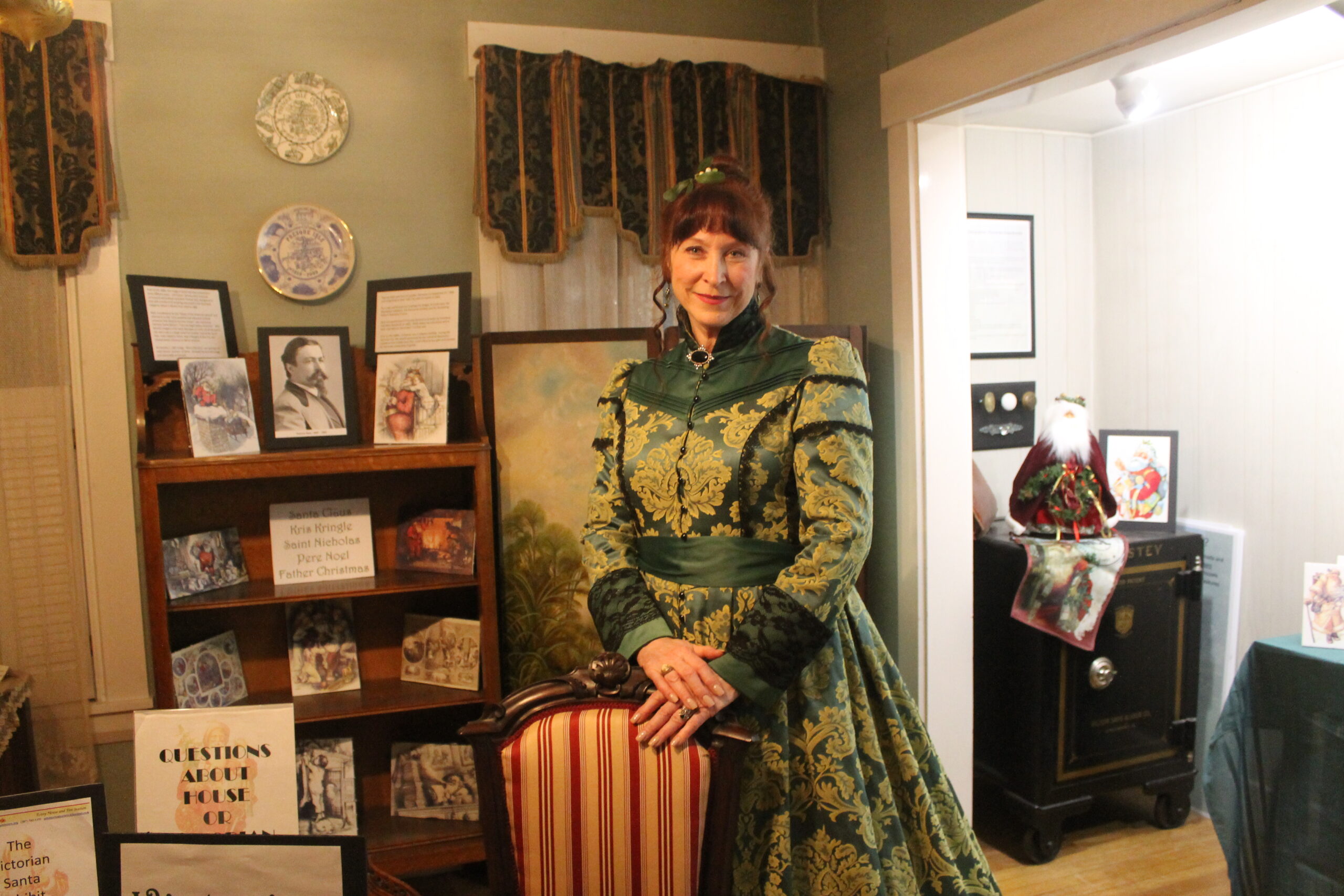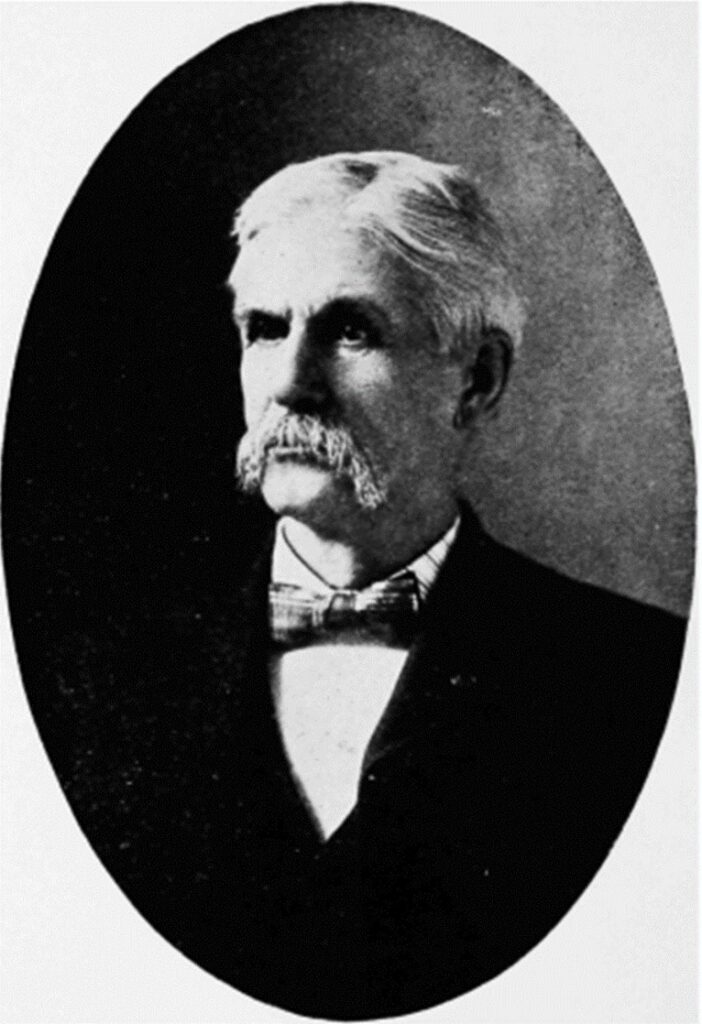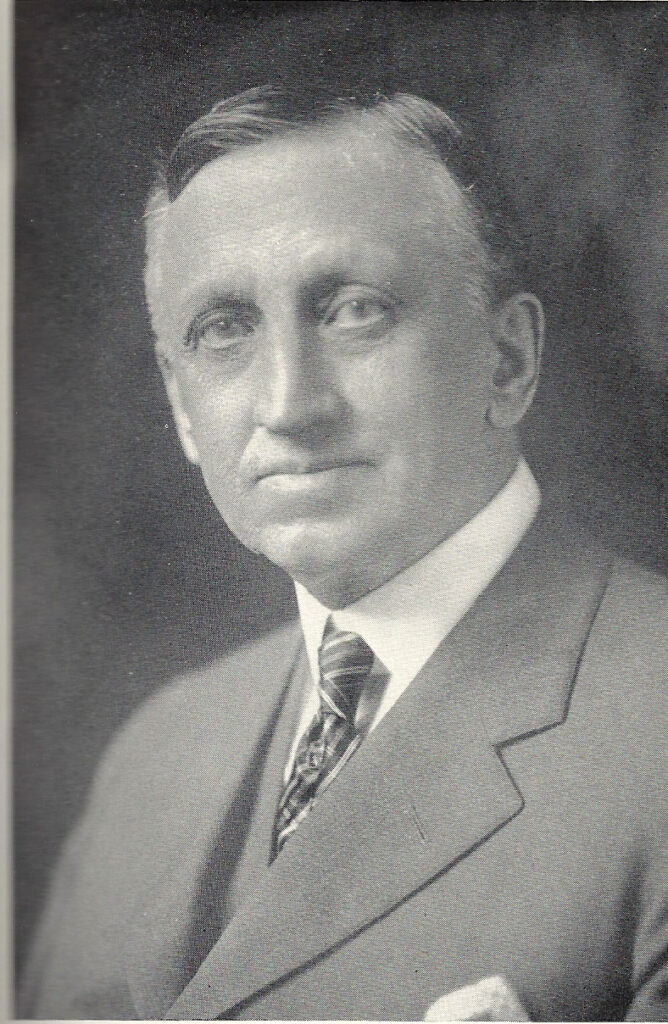
Aroostook County’s first potato farmer and the inventor of the field sprayer were among the most notable contributors to Presque Isle’s history.
The Star City can also thank a postmaster-turned-author, a railroad pioneer and a woman who defied society’s conventions for helping it become a hub of northern Maine.
Presque Isle was founded in 1828 as Fairbanks in honor of its first settler, Dennis Fairbanks. It was named Presque Isle when it became a city in 1859, because it’s surrounded on three sides by the Aroostook River. The name means “almost an island” in French, according to the Presque Isle Historical Society.
This year, the group of around 80 members is celebrating its 60th anniversary. With more than 12 tour series and several museums, the society has grown from its inception in 1963, Secretary/Treasurer Kim Smith said.
“Those early people were so amazing. They belonged to everything and did so much for their community,” said Smith, who’s been involved with the society since 2005. “Some of them may not be that well known, but they kind of put Presque Isle on the map.”
Though it was hard to choose just a few, Smith pointed out some of Presque Isle’s history makers whose imprints are still felt locally and around Maine.
Edward Wiggin (1837-1912)

Almost anyone who has researched County history will have come across the 1922 book “History of Aroostook,” written by Edward Wiggin and published posthumously.
A Civil War veteran and Bangor native, Wiggin moved north in 1854. He worked as a schoolteacher and superintendent, and also with the state’s education department.
Later on he became postmaster of Maysville, which was annexed to Presque Isle in 1883, and also served as a customs officer in Fort Kent.
But it was his service for the state that led to his becoming an author. Wiggin served in the Maine Senate, the statewide Grange and agriculture board, which required a lot of traveling.
“As he traveled, he would interview all the old settlers of an area, and write it all down,” Smith said.
Those interviews became “History of Aroostook,” which is still in use today, she said.
Henry Rolfe (1818-1903)
Another Civil War veteran, Henry Rolfe moved to Maysville in the 1840s and bought 16 acres of land to farm.
Rolfe planted the first acre of potatoes in Aroostook County, Smith said. On his land he also planted 1 acre of wheat and the rest with oats.
At the time, the busy U.S. Route 1 stretch between Presque Isle and Caribou didn’t exist, so harvest time was grueling work. Farmers had to create ways to get their crops to market.
“He’d literally have to carry his goods on his back and row across the Aroostook River to sell his products,” Smith said.
Rolfe’s original house still stands on the Caribou Road, she said, near what is now Clover Leaf Farms. Now 90 percent of Maine’s $258 million potato crop is grown in Aroostook County.
Elisha Parkhurst (1834-1930)
Also a Maysville farmer, with land near Wiggin and Rolfe, Parkhurst was the first potato shipper in the country, and for 25 years was the largest shipper in Aroostook County, according to Smith’s local column “Historically Speaking.”
Parkhurst also served in both the Maine House and Senate, and was involved with the Grange and the Masons.
But every time farmers spray their crops to ward off diseases and pests, they’re keeping Parkhurst’s memory alive. He actually invented the potato sprayer.
He received a letter from the United States Department of Agriculture, crediting him with the sprayer’s design, Smith said.
Parkhurst Siding, an area between Presque Isle and Fort Fairfield, is named after him. The Brewer Road, just off Route 1 on the way to Caribou, was once called the Parkhurst Road.
Allie Cole (1886-1992)
People all over Maine remember A.J. “Allie” Cole, who founded Cole’s Express trucking in 1917.
Though he didn’t live in Presque Isle, his importance to the city — and The County — is significant, Smith said. Cole drivers were the first to plow the stretch of U.S. Route 1 from Houlton to Presque Isle in 1931, opening the area up for year-round business.
“He wasn’t from here, but he started many businesses. He saw Aroostook County as having huge potential, because we had no trucking services,” she said.
Headquartered in Bangor, the company served the East Coast and Atlantic Canada until 1997, including terminals in Presque Isle, Houlton and Fort Kent, according to the Cole Land Transportation Museum.
Cole is also honored with a building at the Southern Aroostook Agricultural Museum in Littleton.
Arthur R. Gould (1857-1946)

Arthur R. Gould pioneered several industries and served in the state and U.S. legislatures.
“When I look up the word ‘visionary’ in the dictionary, I would expect to see his picture,” Smith said. “He lost his life savings three times by the time he was 21, but he died a millionaire.”
Gould moved to Presque Isle in 1886 and bought a lumber mill. Needing a better way to move logs, he fought the Bangor & Aroostook and won the right to start an electric railroad, which opened in July 1910, she said. About 30 years later he sold it to Canadian Pacific.
When a local school burned, Gould financed a new building that was named Gouldville Elementary. The school still stands on Parsons Street and now houses Head Start for preschool children.
Gould also oversaw construction and financed the State School for Boys in South Portland, which still exists on Westbrook Street, Smith said.
Gould died in 1946, when Presque Isle was in the process of building a new hospital. His daughter willed the city a large sum of money on the condition that they name the hospital after him.
Vera Estey (1894-1992)

From one of Presque Isle’s wealthier families, Vera Estey defied society’s expectations of Victorian-era women by remaining single and owning her own business.
Estey grew tulips and lilies of the valley and sold them to the Boston fresh flower market, Smith said. She never married, possibly because her father wouldn’t allow her to marry the man she loved.
“Average females were expected to cook, sew and take care of the house,” Smith said. “But Vera Estey was a refined lady. Refined ladies were also expected to paint, do fancy needlework and play musical instruments.”
Estey did all of that, and her crafts and paintings are displayed at Presque Isle’s 1875 Vera Estey House Museum. When Estey died in 1992, she willed her family home to the historical society, and it became the society’s first museum.
The house is included in several city tours and is the setting for the annual Victorian Christmas at the Estey. The society also owns the Maysville Grange Museum and the Historic Presque Isle Firehouse Museum, and operates a vintage streetcar named Molly the Trolley.
To learn more, contact the historical society at pihistory.org or visit its Facebook page.







